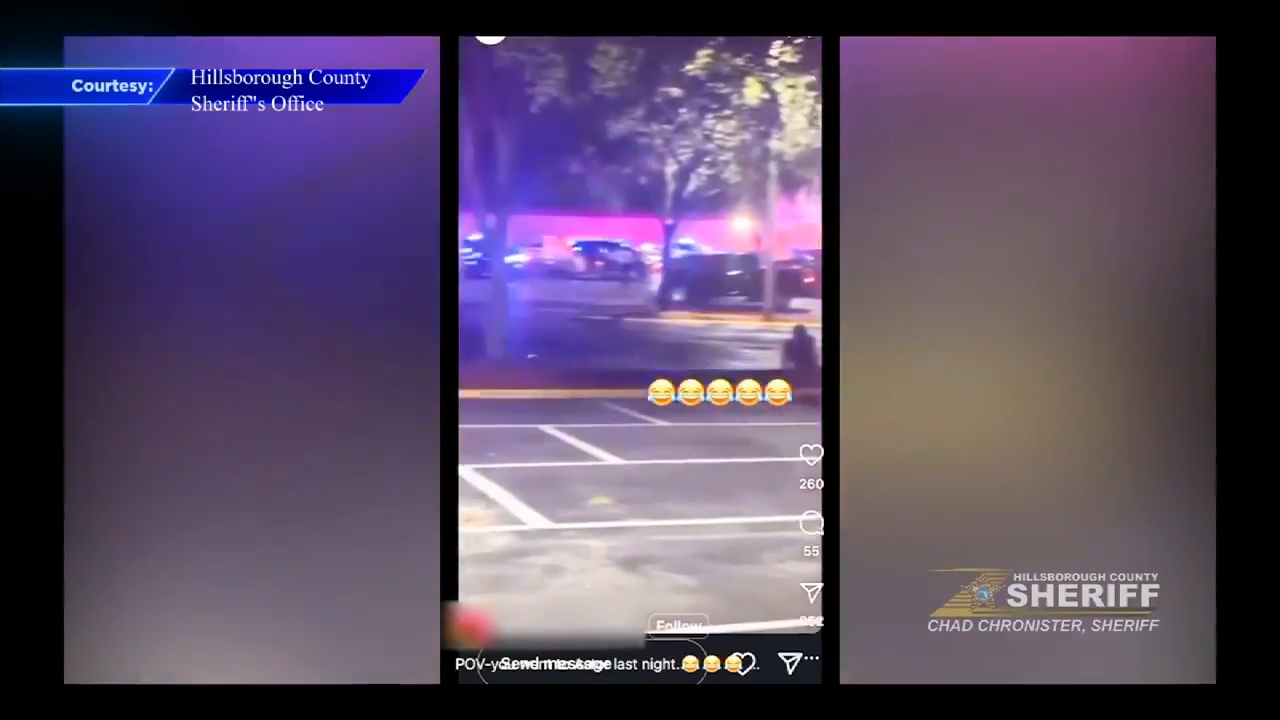Georgia
Wawa breaks ground on first Georgia stores

JESUP, Ga. (WTOC) – Thursday afternoon, Wawa celebrated the official start of construction on its first two Georgia stores located at: US 341 & Community Road, Brunswick, GA 31520 and 356 West Orange Street Jesup, GA 31545.
The events officially introduced Wawa to the community, shared expansion plans and welcomed VIP customers, local officials and charity partners. Finally, at the Community Partnership Day events, Wawa announced contributions to its first community partners – the Second Harvest of Coastal Georgia and the USO Georgia with first grant awards totaling more than $10,000 to support local initiatives.
Wawa also has confirmed two other locations in the Coastal Empire, one in Hinesville and the other in Pooler. Those groundbreakings are scheduled for later this spring.
Copyright 2024 WTOC. All rights reserved.

Georgia
OnPolitics: Trump and Biden’s debate is in Atlanta, Georgia. Here’s why that matters

Hey OnPolitics readers! After it appeared voters wouldn’t get the chance to see the Democratic and Republican presidential candidates square off this year, President Joe Biden and former President Donald Trump agreed to two debates last week.
The first debate will take place June 27 in Atlanta − welcome news for the city, which was one of three finalists bidding to host the 2024 Democratic National Convention, USA TODAY’s Melissa Cruz reported. It ultimately lost out to Chicago, but it wasn’t because of the lack of political drama in Georgia.
The debate’s location has history for Trump and will likely give him and Biden plenty to spar over.
❓What is Trump’s history with Fulton County, Georgia? The debate will be held at CNN’s studios, nestled in the center of Fulton County, which overlaps with Atlanta. The studios are less than a mile from the State Farm Arena, which served as a ballot processing site during the 2020 election. State Farm Arena quickly became the subject of conspiracy theories about illicit votes spread by Trump and his associates on social media in the hours following the election.
Prep for the polls: See who is running for president and compare where they stand on key issues in our Voter Guide
Prep for the polls: See who is running for president and compare where they stand on key issues in our Voter Guide
🏢Fulton County courthouse: After an investigation by the Fulton County District Attorney’s Office, Trump became the first former president to be indicted on felony charges in Georgia. He and 18 allies were charged with trying to interfere with the 2020 presidential election in Georgia after pressuring state officials to overturn the results.
🎯Georgia’s potential as a swing state: Biden was certified as the first Democrat to win Georgia in almost three decades, defeating Trump by nearly 12,000 votes. Georgia will remain a crucial swing state for the candidates in the 2024 election. Both Trump and Biden have made multiple stops in the Peach State during their reelection campaigns, showing how vital these votes are to the candidates.
Read more: The June 27 Biden-Trump debate will be in Atlanta, a city rich with political drama
Stay in the know on politics: Sign up for the OnPolitics newsletter
Georgia
Georgia Lottery compliance inspector arrested by GBI

ROCKDALE COUNTY, Ga. – An employee of the Georgia Lottery Corporation was recently arrested by the Georgia Bureau of Investigation.
Michael Kessler, 62, was employed as a compliance inspector.
Georgia Lottery reportedly received allegations that Kessler was accepting bribes from store owners and asked the GBI to investigate immediately.
On May 13, the GBI executed a search warrant of Kessler’s home in Rockedale County.
Kessler was booked into the Rockdale County Jail and then taken to the Henry County Jail.
This investigation is active and ongoing. The Georgia Lottery has been working with the GBI to provide any support needed for the investigation. Anyone with information is encouraged to contact the GBI Office of Special Investigations and Commercial Gambling Unit at 404-270-8491. Anonymous tips can also be submitted by calling 1-800-597-TIPS (8477), online at https://gbi.georgia.gov/submit-tips-online, or by downloading the See Something, Send Something mobile app.
Georgia
Georgia Statute of Limitations Not Automatically Tolled in Negligent Security Cases

Insurers covering property in Georgia could be on the hook for personal injuries occurring on the premises if the property owners and property managers do not fulfill their duty to exercise ordinary care in keeping their premises and approaches safe, pursuant to the state’s premises liability law, O.C.G.A. § 51-3-1. In 2023, the Georgia Supreme Court ruled in Georgia CVS Pharmacy, LLC v. Carmichael that this duty extends to exercising ordinary care to protect invitees from reasonably foreseeable and preventable criminal acts.
For personal injury claims, the statute of limitations in Georgia is two years. The two-year statute of limitations is measured from the date of injury, and a lawsuit filed after the expiration of the statute of limitations is subject to dismissal.
However, in negligent security cases, sometimes the statute of limitations is extended if there is a criminal prosecution. O.C.G.A. § 9-3-99, the statute that governs the tolling of limitations for tort actions while criminal prosecution is pending, provides in full:
The running of the period of limitations with respect to any cause of action in tort that may be brought by the victim of an alleged crime which arises out of the facts and circumstances relating to the commission of such alleged crime committed in this state shall be tolled from the date of the commission of the alleged crime or the act giving rise to such action in tort until the prosecution of such crime or act has become final or otherwise terminated, provided that such time does not exceed six years, except as otherwise provided in Code Section 9-3-33.1.
In short, if there is a criminal prosecution related to the underlying criminal act that forms the basis of a plaintiff’s lawsuit, the statute of limitations can have up to an additional six years added, meaning that a plaintiff could file their lawsuit as late as eight years after the actual incident occurred.
However, the tolling of the statute of limitations is not absolute. According to case law, a plaintiff who seeks to take advantage of the statute of limitations tolling bears the burden of establishing that they are entitled to such tolling.
Which Plaintiffs are Entitled to Tolling?
In determining whether a plaintiff is entitled to tolling of the statute of limitations, a claim analyst can check to see if the following facts are true:
- The underlying crime that forms the basis of the plaintiff’s lawsuit was charged by law enforcement.
- If the victim was an adult when the crime happened, the underlying crime occurred no more than eight years before the complaint was filed.
- If the victim was a minor when the crime happened, the complaint either was filed not more than two years after they turned 18, or if the criminal prosecution is still pending, was filed not more than two years plus the remaining time of the criminal investigation, not to exceed an additional six years after they turn 18.
- The time between the final resolution of the criminal prosecution and the filing of the complaint is no more than two years.
- The plaintiff is not the one charged with the crime.
- The plaintiff is not a family member of the victim of the crime bringing a wrongful death claim.
- The plaintiff did not engage in mutual combat.
If all of the foregoing statements are not true, a plaintiff’s claim might not be entitled to tolling under the statute of limitations and could be subject to dismissal.
Why Is This Significant?
To be entitled to tolling of the statute of limitations, a plaintiff must demonstrate that there was a criminal prosecution and the prosecution is either still pending or ended so recently that the statute of limitations did not expire prior to the filing of the lawsuit, and that the plaintiff meets the definition of a victim under the statute. Accordingly, the plaintiff must be the actual person injured or the estate of the person injured, and the plaintiff cannot have been charged with the alleged crime or have been engaged in mutual combat.
The application of this rule is of particular interest in cases where there is a potential defense based on the plaintiff engaging in mutual combat. A plaintiff who engaged in mutual combat is also not a victim under the statute O.C.G.A. § 17-14-2(b), which provides in pertinent part that a “‘[v]ictim’ shall not include any person who is concerned in the commission of such unlawful act.” O.C.G.A. § 16-2-20 has been interpreted to define those “concerned in the commission of an unlawful act” to include individuals engaged in or assisting in acts of mutual combat.
A motion for summary judgment on a statute of limitations defense still requires issues of disputed fact to be viewed in the light most favorable to the nonmovant. However, a plaintiff may not survive summary judgment merely on speculation or the contents of their pleadings. Where a plaintiff wishes to take advantage of statute of limitations tolling and there is a legitimate mutual combat defense, the plaintiff must present some evidence that they did not engage in mutual combat. This burden can be almost impossible for an estate to satisfy, as the estate was not present at the time of the incident and generally lacks first-hand knowledge of precisely what happened.
Being aware of when the statute of limitations is tolled and when it is not tolled may assist in dismissing many claims that plaintiffs might assume are tolled.
John “Jack” McCall is a civil defense attorney at Swift, Currie, McGhee & Hiers LLP in Atlanta, Georgia. His practice focuses on the defense of premises liability claims, including cases involving slip and falls, defective construction, elevator malfunction and negligent security.
Read more on the Carmichael case and other negligent security/premises liability cases.
Topics
Georgia
The most important insurance news,in your inbox every business day.
Get the insurance industry’s trusted newsletter
-

 News1 week ago
News1 week agoSkeletal remains found almost 40 years ago identified as woman who disappeared in 1968
-

 World1 week ago
World1 week agoIndia Lok Sabha election 2024 Phase 4: Who votes and what’s at stake?
-

 World1 week ago
World1 week agoUkraine’s military chief admits ‘difficult situation’ in Kharkiv region
-

 Movie Reviews1 week ago
Movie Reviews1 week agoAavesham Movie Review
-

 News1 week ago
News1 week agoTrump, Reciting Songs And Praising Cannibals, Draws Yawns And Raises Eyebrows
-

 World1 week ago
World1 week agoCatalans vote in crucial regional election for the separatist movement
-

 Movie Reviews1 week ago
Movie Reviews1 week agoUnfrosted Movie Review: A sweet origins film which borders on the saccharine
-

 Politics1 week ago
Politics1 week agoNorth Dakota gov, former presidential candidate Doug Burgum front and center at Trump New Jersey rally


















